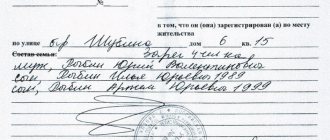August 21, 2020
Adviсe
A novice investor approached the editors of AG with this question. “If you don’t understand anything about investing, go sweep the streets,” the fraudulent broker advised the man. He refused to return the money, but there is still a chance to get it back
- Give me back my money - 500 dollars.
“I told you, Nikolai: top up your account and I’ll pay you back.”
“I’ve already replenished it once, and you’re lost.” I didn't see you. There is no license or contract. You are committing fraud, extorting money from me.
– I don’t extort, but I help. I’m asking for the last time, and this is an offer, not an extortion: will you restore the account? Yes or no?
- I won’t restore anything. You transferred my money somewhere. Return it.
– You don’t understand anything about investing, Nikolai. What can I do here? You need to read books and develop yourself. All the best…
Types of fraud on the Internet
Fraud has one feature that makes it difficult to investigate - in most cases, the victim, of his own free will, provides information to the criminals that leads to the loss of his money. Types of fraudulent activities in cyberspace:
- Online stores. A huge number of stores offer low prices on goods. This attracts people, they pay money for a virtually selected product. After the money arrives in the seller’s account, it disappears, leaving the buyer without money and goods. The second type of deception in an online store: instead of the declared item, a bad copy is sent by mail, cheaper and of worse quality.
- Creating copies of bank websites. The scammer who created this site invites the user by email or SMS to log in to it. When a user lands on a fake website, he logs into his personal account, revealing logins and passwords to access his accounts. Using this data, the fraudster empties the bank account.
- Hacking electronic wallets. This type of receiving and storing money has become popular in recent years. The fraudster can send a message about the operator’s loss of credentials with a request to send them again. After receiving this data, he will empty the wallet.
- Emails. A letter arrives in the mail with a message about the won valuable prize. To receive it, the winner must transfer a certain amount to the account specified in the letter.
- SMS message from the bank about account blocking. After this message they ask you to transfer money to unblock it.
- Fake airline websites. Prices that are too low, a request to transfer money to an electronic wallet, or a foreign bank account are points that should alert the buyer.
- Imaginary charitable purposes. A story appears online about a child who needs urgent surgery abroad. This is where the money is collected.
- Distant work. Some unscrupulous employers offer work from home with advance payment for organizational needs. Even after completing the proposed work, the contractor will not receive money for it and will waste his money and time.
The understanding that the possibilities of the Internet are limitless does not add to optimism. This means that scammers will come up with new schemes to deceive people.
Directorate “K” of the Ministry of Internal Affairs of Russia
One of the main tasks of Directorate “K” of the Ministry of Internal Affairs of Russia is to combat fraud committed using the Internet and electronic payment systems. In order to obtain a return of funds transferred to the attackers, as well as to block a fraudulent site where illegal activities are carried out, the user can complain to Management “K” in the following ways:
- At a personal reception with an authorized employee at the reception of the Ministry of Internal Affairs, which is located at: Moscow, st. Sadovaya-Sukharevskaya, building 11. Its operating hours can be found on the page https://xn--b1aew.xn--p1ai/help/Priemnaja_MVD_Rossii. You can obtain information about the procedure for considering accepted applications received by the Ministry of Internal Affairs by calling an automated telephone number. At the reception, it is better to submit a written complaint about online scammers, which will be transferred to the appropriate department.
- By letter by Russian Post, sending a written request to the address: 129090, Moscow, st. Sadovaya-Sukharevskaya, building 11. Department “K” should be indicated as the addressee, and it is better to send it by letter with a notification to ensure that it has been delivered to the recipient. In the document compiled, it is important to indicate all the necessary details (web addresses) and any other available information (bank account number where the money was sent, electronic wallet, mobile phone, etc.) that will help identify the owners of the resource.
- Online through a special form on the website of the Ministry of Internal Affairs of the Russian Federation xn--b1aew.xn--p1ai/request_main, where you can indicate exactly to whom the complaint is addressed. The procedure for submitting such an appeal is not particularly different, so the user must accurately indicate his personal data, choose the method of receiving a response and describe as accurately as possible the circumstances that prompted him to seek protection of his rights. In the “Text of appeal” field, you must provide the address of the fraudulent site and any information that can be used to analyze the situation.
Important! A citizen can submit an appeal to his territorial division of the Ministry of Internal Affairs, since in any case it will be transferred to the final recipient - to Department “K”.
You can find out the necessary information to file a complaint with the territorial authority on the website xn--b1aew.xn--p1ai/contacts/sites.
Where to report scammers
When faced with an online scam, the victim wonders where to go to get their money back. In this case, you should report:
- To the police. This type of offense is dealt with by a special unit of the Russian Ministry of Internal Affairs.
- To the technical support service of the payment system that carries out money transfers.
- In Roskomnadzor, which controls the activities of organizations providing services in the field of electronic technologies.
There is no point in trying to find scammers on your own. Since cheating on the Internet is a crime, it is the task of the police to find the criminals and bring them to justice.
Where to go to get your money back
To return money lost as a result of fraudulent actions, the victim can contact any police department and write a statement. This needs to be done as quickly as possible after losing money. An urgent response from the victim will allow prompt action to be taken. In this case, there is a possibility of returning the lost money. It is advisable to attach to the application the website address, printouts of written communications, the account number for the transfer, and the phone number from which the information came.
You can also leave a statement on the Ministry of Internal Affairs website, attaching screenshots of existing correspondence with the fraudster.
Important!
Even if the amount of damage is small, you should definitely file a report with the police.
Prosecutor's office
Fraud, regardless of the form of such activity, is subject to criminal liability, as indicated by certain provisions of the current legislation. In this regard, the user has the right to complain about online scammers to the Prosecutor’s Office even if the claims submitted to the Office “K” and Rospotrebnadzor did not bring the desired result. It can be done:
- In writing, by sending the completed document to the address of your territorial unit, details of which can be found on the page gov.ru/contacts/map/?DISTR=&SUBJ=. Due to the fact that such an appeal may become the basis for initiating a criminal case, the application should clearly describe the situation, indicate the details of the parties to the conflict (for example, you can write the number of the electronic wallet to which the funds were transferred) and the website address. The envelope can also contain additional materials that can be used during the investigation.
- At a personal reception held by the prosecutors on duty. You can obtain information about their operating hours directly from your territorial unit, where you can also make an appointment if this is a prerequisite for submitting an application in person. During the visit, you will need to present your passport, provide known information about the fraudulent site and, if possible, provide evidence that will allow you to conclude that illegal activity is taking place.
- Online by submitting an electronic complaint to your territorial unit. But this can only be done if such a function is available to residents of the region (as a rule, this option is located on the right in the vertical menu). In particular, this opportunity is provided to residents of Moscow, who can submit claims electronically via the link mosproc.ru/ipriem/iemail.php. After describing the facts that, in the opinion of the victim, indicate obvious fraud, it is worth attaching to the form any electronic documents that indicate criminal activity by the owners of the Internet resource.
How much does a criminal case start?
The answer to the question of which article applies for fraud on the Internet is given by the Criminal Code of the Russian Federation. Article 159.6 provides for different types of punishment. For damage from 1000 to 2500 rubles, administrative punishment is provided in the form of a fine.
If we talk about the amount for which a criminal case is opened for fraud on the Internet, the minimum amount of damage is 2,500 rubles. The fraudster may be sentenced to imprisonment for at least 2 years, depending on the amount of damage and the circumstances of the crime. If unlawful actions are committed by a group of persons by prior conspiracy, the period of stay behind bars can be up to 10 years.
How to avoid becoming a victim of scammers on the Internet
Employees of the Ministry of Internal Affairs recommend following the rules to protect yourself and your money:
- When turning to the services of an online store, choose a trusted supplier, pay attention to the duration of the site’s existence and its design. The price is too low compared to the existing average market level, the lack of a telephone number or legal address of the organization for feedback may indicate the seller’s dishonesty. Serious sellers will not ask to transfer money for goods to a phone account or e-wallet.
- Do not give your bank card details, passwords, or accounts to strangers, regardless of who the fraudster appears to be.
- If you receive a notification about a large win in a lottery in which you did not participate, ignore this notification and do not transfer money.
- When receiving messages from the bank, contact the bank's hotline and clarify the situation.
- If you receive a message about the need for a new registration on the website of the bank that services the account, do not try to register again. It is better to contact the bank and clarify the reason for the application.
- Purchase air tickets only on trusted, reputable sites. Flight numbers and directions can be double-checked on the official website of the carrier airline.
- Never open or download unknown programs or applications. They may contain paid subscriptions or viruses that give access to bank account and card data.
- Before helping a patient, contact your family and doctors, try to make sure their intentions are honest. Donate to a real child who really needs help.
Internet fraud is a crime associated with the theft of other people's funds. Like any illegal actions, it is punishable. Methods for identifying fraudsters are being improved, but at the same time, each of us must improve our information literacy, be more vigilant and judicious in relation to our property.
Sale/purchase with delivery
Remote payment and delivery give scammers room for activity. If you use third-party payment instruments and delivery services rather than services linked to the site that provide security, fraudsters can simply send low-quality goods to buyers from another city or use all the above schemes under the pretext of distance. Therefore, if possible, it is better to meet with sellers and buyers from the same city in person. Especially if you are selling or buying a product, the photograph of which makes it unclear whether it is working or not.
If the seller or buyer is in another city and there is no opportunity to meet, it is worth asking when he registered on the site, if he is a seller, how many and what other advertisements he has. The more long-time and active user he turns out to be, the better. If a user registered only yesterday, this is a reason to be wary: scammers often create new accounts. During the communication process, you can offer the interlocutor to use a secure transaction or meet in person. If this is an honest user, he will agree, and if it is a scammer, he will most likely interrupt the conversation. In any case, it is better to use the secure transaction and delivery functions, but only on the site itself (no links!).









